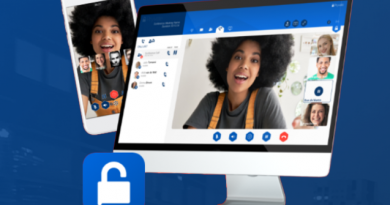Data Goldmines: How Your Data Is Bought and Sold
Keep in mind: not all on the dark web is illegal. However, it’s a massive marketplace for stolen personal information and data. When a hacking incident or data breach occurred, personal data is often bought and sold on the dark web by identity thieves seeking to make money off your good name.
Different Ways Your Data is Used Right Now
Whenever you ask a search engine a question or every time you share a meme with a friend on social media, the information you share is being saved, collected, and distributed. You possibly do not give it enough thought, but your data could end up in numerous unexpected places. Below are some ways your online data is being utilized today.
- Websites utilize it for internal research
Most sites use their users’ data to perform internal research. They might investigate the links you click in, the time you spend on a specific page, the media you share to optimize everyone’s user experience. Your online behavior might also lead to changes to a website’s design or help encourage new features.
- Apps utilize it to peek into your whereabouts
Do you have a smartphone? There’s a high chance you are sharing data without even noticing it. Many download applications monitor your whereabouts even if you are not actively using such programs.
It is not only the location-based apps such as maps that record location information, but also social media apps, games, and utilities such as flashlights trace users’ locations. A study discovered that smartphone users who used an array of phone apps for two weeks had their location documented at least 5,000 times in only fourteen days.
- Insurance firms assess it
Insurance firms have been sought to buy and analyze your online data, using it to set premiums and rates. A few firms might even go as far as to snoop to a customer’s social media pages to deny or confirm claims.
- Social media networks use it to help you find friends
Did you know that social media sites use the data you share, including your current location, school, job, and hometown, to connect you to people you might know? They also utilize your current social network—people you have connected with online—to find common connections.
- Companies sell your data
Your data is much valuable than you think. You may not know it yet, but there’s an economy in place to buy and sell your online data. Further, data brokers collect your online information—everything from your name and address to your general internet activity and income—and sell it to other businesses and brokers.
- Thieves use it to steal your identity
Some of the activities mentioned so far might be quite creepy, but they are all legal. However, you will find other ways your data could be utilized illegally. Fraudsters can use your personal data your share online and steal your overall identity, using your credit card details and name to make purchases of their own.
It is nearly not possible not to put any of that data online. However, you should be extra mindful of what websites you use and ensure your passwords are secure to prevent your stolen data.
Types of Information Available & Its Price
You may be thinking about how much your data worth to these cybercriminals is. Well, brace yourself because the answer may shock you. Different pieces of information may be more important to cybercriminals, and it will vary on different factors.
Below are the most typical pieces of information bought and sold on the dark web and the standard range of what they are worth:
- Medical records: $1 to $1,000
- Passports: $1,000 to $2,000
- Driver’s license: $20
- Diplomas: $100 to $400
- Subscription services: $1 to $10
- Loyalty accounts: $20
- Online payment services login info (such as PayPal): $20 to $200
- Credit or debit card (credit cards being the most common): $5 to $110
- With bank information: $15
- With CVV number: $5
- With Fullz info: $30 (This is a bundle of information that is composed of a full package for fraudsters, including name, birthday, SSN, account numbers, which make them desirable)
- Social Security Number: $1
How Are These Pieces of Information Bought?
You will find different procedures a personal data is bought and sold on the dark web:
- Buy data as a one-off, like a SS number
- Buy bulk information, batches of the same information type
- Buy bundled information. It is often referred to as the premium package for identity thieves as it comprises different information bundled together
Factors that Contributes to the Price of Personal Data
You will find various factors driving the price of data bought and sold on the dark web. This includes the following:
- Limits or the capability to reuse the data
It is more valuable to fraudsters if something has a greater limit or could be reused multiple times. On the other hand, personal data with low limits to steal or use could be leveraged after it’s less valuable.
- Account balance
The higher the amount that can be acquired, the higher the price of that stolen data. That’s especially true whether dollar values or points in an account.
- Data supply
The economic principle of supply and demand applies to fraudsters buying and selling stolen data. When there’s a low supply of specific data accessible for purchase, that data is more valuable to criminals.
- Data type and demand for the specific data
As stated, various types of information could bring various monetary values.
Practices to Protect Yourself
This might look scary or overwhelming. However, you must be aware of what’s happening so you can safeguard yourself. Data breaches are on the rise and out of your control. Ensure you exercise good habits for your personal data, such as keeping healthy password practices and stopping from sharing your personal data unless needed.
You should also ensure you keep your software updates and antivirus software on every device current, as those updates may have important security patches that are integral to safeguarding your data.



